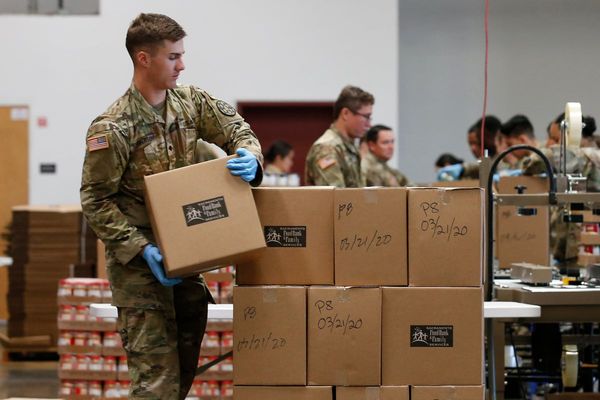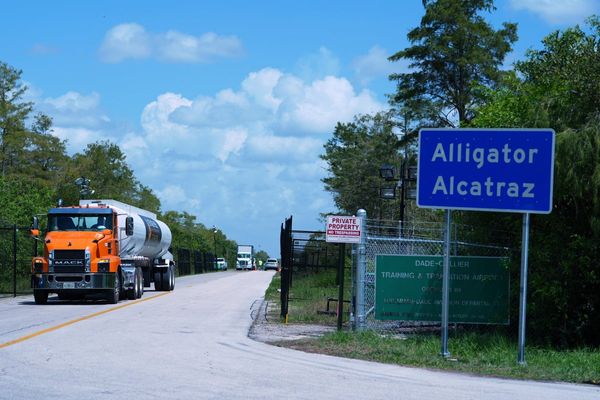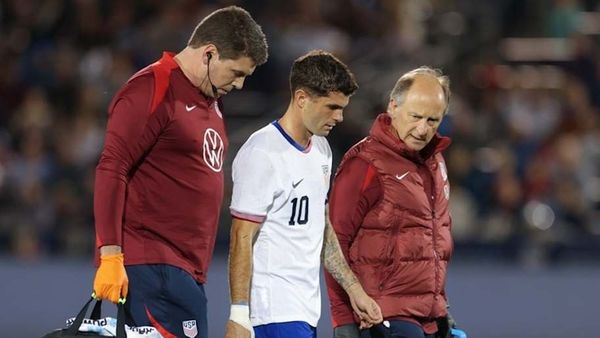Everybody knows a car oil leak can damage the engine and result in costly repairs. And they also know a leaky toilet can cause the water bill to spike. But retirement savers may have no idea that so-called "401(k) leakage" can drain their 401(k) and hurt their plans for the future.
401(k) leakage occurs when savers take withdrawals from a retirement account before they retire — just to plug a hole in their budget now. Leakage might also be due to the poor decision of cashing out of a 401(k) and pocketing the money after switching jobs. Taking out a 401(k) loan that is not repaid is another form of leakage.
Leakage for most people happens in two ways, says Kelly Hahn, head of retirement research at Vanguard. Raiding a 401(k) or treating it like a savings account can happen while retirement plan participants are still employed. It might also happen when they leave their job.
A surprising number of savers take out a 401(k) loan while they're working and don't pay it back. At the end of 2024, 13% of Vanguard 401(k) plan participants had an outstanding loan, according to Vanguard's "How America Saves 2025" study.
401(k) Leakage Will Cost You
Taking an early 401(k) distribution before age 59 1/2 is often costly. Doing so typically results in a 10% IRS penalty plus taxes on the money withdrawn from the 401(k). Even so, in 2024, 4.5% of Vanguard plan participants took this type of withdrawal. That's up from 4% in 2023.
Many times people take money out early under so-called hardship withdrawals. These withdrawals cover events like medical expenses, costs related to buying a primary residence or payments necessary to avoid eviction. They might also be to pay for costs related to damage to your main home, tuition or education costs, funeral expenses and losses incurred from FEMA-declared natural disasters. Such withdrawals are not subject to the 10% penalty, but they still cost you in lost gains.
Hardship withdrawals rose to 4.8% in 2024, up from 3.6% in 2023, according to Vanguard.
Be Careful With Your 401(k) When Job Hopping
Leakage also occurs when people switch jobs. Instead of rolling over the money into another tax-deferred retirement plan, they take cash out of their 401(k).
In fact, a third of 401(k) plan participants at Vanguard cash out of their savings when they leave their jobs. And some withdraw funds while still employed, according to Vanguard's latest study.
Such 401(k) leakage can seriously hurt long-term retirement outcomes. The long-term costs of 401(k) leakage range from lower account balances, lost investment growth, incurring penalties and taxes, and more financial stress and less financial security in retirement.
"Retirement wealth is built with regular savings but also from long-term compounding of money invested over many decades," said Hahn. "So, when people are taking money out during their working years or cashing out all together through job changes it really sets people back in terms of accumulating the wealth they need to retire successfully."
401(k) Leakage Hurts The Young
401(k) leakage is particularly damaging to younger savers. It also hurts those who job hop and cash out each time they go to a new employer. The reason: younger savers miss out on decades of compounding. And even small savings amounts can grow to large sums over time.
"It's kind of building a bad habit of using your 401(k) as a piggy bank," said Hahn.
Let's say a 30-year old with a $20,000 401(k) balance moves on to a new job and cashes out the 401(k). That saver misses out on the chance to grow that small account balance over time. In fact, that initial $20,000 investment could have grown to $153,722 if the money had remained invested until retirement at age 65 and earned an annual rate of return of just 6%.
Even a small withdrawal today can lead to significant setbacks to retirement savings over a lifetime. That's especially true for younger workers. This type of 401(k) leakage can mushroom if job hoppers cash out every time they leave a job. The money leaving the account loses its ability to grow.
"The secret sauce to building your nest egg is to start saving early and allowing the money to compound over time," said Jason Grover, financial planning specialist at Grover Financial Services. "It's the magic of investing. So, stopping compounding is the biggest loss of having leakage."
Long-Term Concerns
The long-term costs of 401(k) leakage pile up. "Looking at the math is critical," said Grover. "If people run some numbers and really see how costly 401(k) leakage is to them, it will educate them to the downsides of this. And maybe they will avoid doing that."
How do you avoid 401(k) leakage? The No. 1 way to avoid raiding your 401(k) is to have an emergency savings fund. This fund would serve as a buffer when cash gets tight. The bigger cash cushion you have the less likely you'll need to tap your 401(k) in a financial emergency. "You want to build financial resiliency," said Hahn.
Having cash on the sidelines is a critical first line of defense for 401(k) plan participants. That's especially true for people with more volatile and unpredictable earnings streams like hourly workers or those working gig jobs. The goal is to preserve your 401(k) account balance so it can grow over time.
"A 401(k) is a long-term savings account for retirement and should not be treated like a spending account (while you're still working)," said Grover. "That's why I highly recommend an emergency account, so you have cash for those unexpected events like when the car transmission goes or the furnace needs repair. And you don't have to pull out of your 401(k)."
One tip to build an emergency fund is to lower your contributions to your 401(k). Funnel the freed-up dollars into an emergency fund, says Grover. At minimum, Grover recommends having three to six months of living expenses set aside in a savings account that enables you to access your money quickly and easily.
"Having an emergency fund means you won't have to tap your 401(k) or your credit card when spending shocks and income shocks hit," said Hahn.
Learn To Roll Over Your 401(k)
Retirement savers must also discipline themselves to roll over any account balances to another retirement account when they switch jobs. That's true no matter how small the balance is. Think rollover — not cash out.
When choosing between taking out a 401(k) loan versus taking a hardship withdrawal from your retirement account, Hahn leans toward taking out a loan, especially if the borrower thinks they are in a good position to pay it back.
The reason is simple: "Because you're paying yourself back," said Hahn, And the interest rate you're paying on your retirement account loan is much lower than what you'll pay on a credit card, says Hahn.
Plan loans allow 401(k) plan participants to access their plan savings before retirement without incurring income taxes or tax penalties. If permitted by the plan, participants can borrow up to 50% of their balance (up to a maximum of $50,000).
Missing Out Over Time
To be sure, dollars you take out in a loan will miss out on compounding even if you pay the loan back over time.
Why you're taking the loan out is another key consideration, notes Hahn. For instance, say you've been saving for decades and have a sizable account balance. Taking a loan out for a down payment for a beach cottage, a financial asset with appreciation potential, is less hurtful than yanking money out for a spendy vacation.
What's more, most hardship withdrawals come with a 10% early withdrawal penalty as well as triggering a tax bill. Hahn says hardship withdrawals in Vanguard 401(k)s have inched up from 2% to 5% of plan participants.
Homeowners with home equity built up may also consider tapping their home for needed cash, rather than raiding their 401(k)s, Grover says. "So, depending on interest rates that may be a better option because you don't have prepayment penalties, and you don't have to take a distribution from your 401(k)," he said.
The bottom line: "The ultimate downside to leakage is that you can't retire when you want to, and you can't retire in the way you would like," said Hahn.







